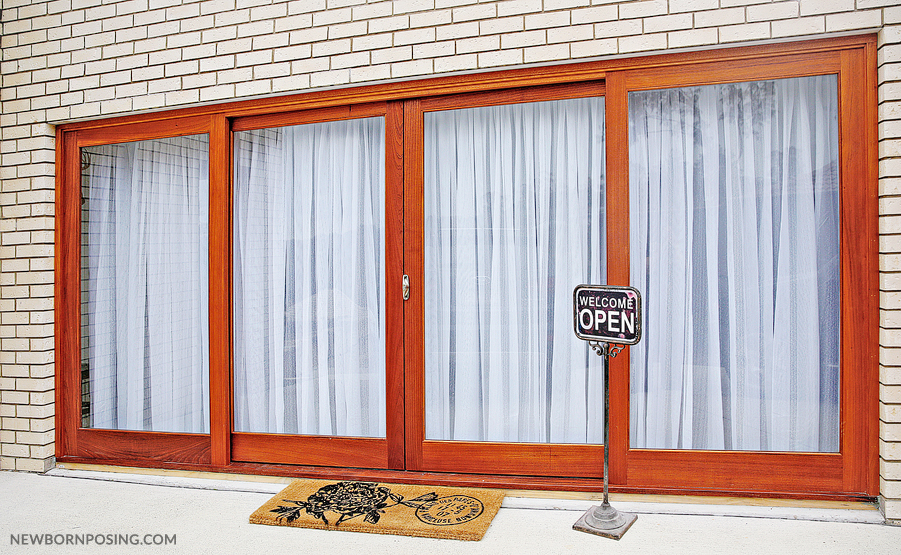Whether you’re setting up your first newborn photography studio or taking your existing business to the next level, there are a number of responsibilities, both practical and legal, you must address. Do you know your responsibilities as a business owner?
The rules which govern many of these responsibilities may differ based on the city/country in which you are operating. So this article highlights some of the most common requirements globally. We recommend you use these as a reference point for your own research and preparation.
LICENSING AND PERMITS
Firstly, before investing too much time or money on your planned business, it’s crucial you seek the appropriate approvals required to operate from your proposed place of work.
Licences, permits and / or registrations give businesses approval to carry out their activity, in their location. They also help to protect a business and its employees.
Your specific requirements will depend on your business type and structure, the business activities you propose to carry out. The location of your business, and whether or not you employ staff are also factors.
Business Structures
Be aware that, in most countries, there are multiple types of business structures, each with their own pros and cons. In Australia, for example, the four most common business structures are sole trader, partnership, company and trust. Whatever the options available to you, it’s important to understand the differences and which is in your best interest. Speak with a business advisor, accountant or lawyer in your state/country to determine the best choice for you.
Working from Home
Do you have a suitable room in your house for your new studio? Is there easy access for your clients? What is your budget?
And, do you have a plan which will allow you to balance your work and personal spaces?

Every council has different regulations, which may impact the viability and legalities of running a business from your home. When embarking on your business plan, don’t forget to research any restrictions which your potential home business may be subject to. These MAY include concerns such as limitations on commercial deliveries, visitors to your property (parking), and the ability to place business signage on your property.
Contact your local council to discuss the following in full. This will help you assess the feasibility of working from your proposed space:
- Town planning laws
- Zoning requirements
- Any other home business requirements they can advise you of
You MUST gain council approval for all relevant matters before you begin operating.
Working from a Commercial Space
Today, many options exist for creatives to work outside of their own home. Both short and long term rent/lease options are available in many cities of the world. Before deciding whether to buy or lease a space for the long term, you might also consider casual hire of client meeting rooms or co-working spaces until you are ready to take a bigger step. Your responsibilities as a business owner include knowing any obligations or limitations in your workspace.

Once you are ready to buy or lease a commercial/retail property, we recommend you seek the advice of a solicitor, accountant and professional business advisor. They can help by making sure you’re aware of all obligations, as well as the tax implications of your decisions.
In addition to the previously mentioned items, contact a town planner, and your local council for the correct information regarding your responsibilities at the property. They can also advise any restrictions which may be placed on your business BEFORE you make a commitment.
Remember, real estate agents are not an authority – their job is to sell you something. Have your lawyer check any such agreements.
Your Rights & Responsibilities as a Business Owner
Below is a list of rights and responsibilities of business owners, common across many parts of the world. The list is by no means complete, and some items may not be compulsory for your specific business situation. However, we recommend you use this list is a starting point for your research.
Keeping yourself informed and up to date makes you a better business owner.
COMMON BUSINESS RESPONSIBILITIES
- Business name registration
- Business number registration
- Tax registration for your business
- Approval to erect signage at your premises
- Privacy laws or principles – if you handle/collect personal data
- Trademarks – do you have a unique name to protect?
- Workplace health and safety practices
- First Aid training
- Codes of practice – check any obligations of your industry
- Consumer’s rights and responsibilities
- Are you required to offer a guarantee on your goods and services?
- Are you obligated to have a refund policy?
- Copyright law – be aware of the law as it relates to your business. Put appropriate contracts and model agreements in place as required
- Music licenses – may be required if you play copyright music in your workplace
- Software licensing – often limited to a number of devices
- Licensing is likely required for fonts and other creative assets you may use commercially in products and marketing
Remember, failure to acquire the required permits and licenses may subject you to severe penalties.

Insurance
You will need to contact your insurance company to discuss what types of insurances are needed for your business.
In addition to protection of your premises and equipment, also research insurances which may protect you, should you (or your staff, or products) cause injury to a third party. Be aware that some venues will request a Certificate of Liability Insurance before permitting you to work on their premises (eg. wedding venues).
When discussing your policy, seek clarity on what your policy does and does not cover, and any conditions under which these may change. Read the Terms & Conditions carefully so that you are aware of any and all obligations you must meet to ensure you are fully covered by your policy.
Do You Need a Separate Business Bank Account?
The legal answer depends on where your business is based as well as its structure. So make a note to check with your banks or a business advisor.
Even if you’re not legally required to keep your personal and business bank accounts separate, we highly recommend the practice. You will wish you’d done it sooner when you realise the time-saving benefits at tax and accounts time!
Additionally, a dedicated business account will help you keep an eye on your spending, and manage your cash flow. Reconciling your bank statements and doing your tax returns are so much simpler when working from a separate business account. Note if you wish to receive payments electronically, many banks require you to have a business bank account for this.
And honestly, it just makes managing your money simpler!
After you have addressed the above by contacting the appropriate departments for approvals and insurances, you can start working on creating your dream space and growing your business.
NOT SURE WHERE TO START?
Search for terms such as Small Business Association or Better Business Bureau in your country and/or state. These departments or organisations are often founded or supported by government. They exist to help small businesses learn, connect and prosper.
Seek up to date and accurate advice for your business situation from a professional business advisor, accountant or lawyer in your area. Knowing your responsibilities as a Business Owner
USEFUL LINKS
Business Queensland (Australia)
Business.gov.au (Australia)
US Small Business Administration (USA)
Business & Self-Employed (UK)
Accessibility Fact Sheet (VIC, Australia)
HAVE ANYTHING TO ADD?
Let us know in the comments below…


